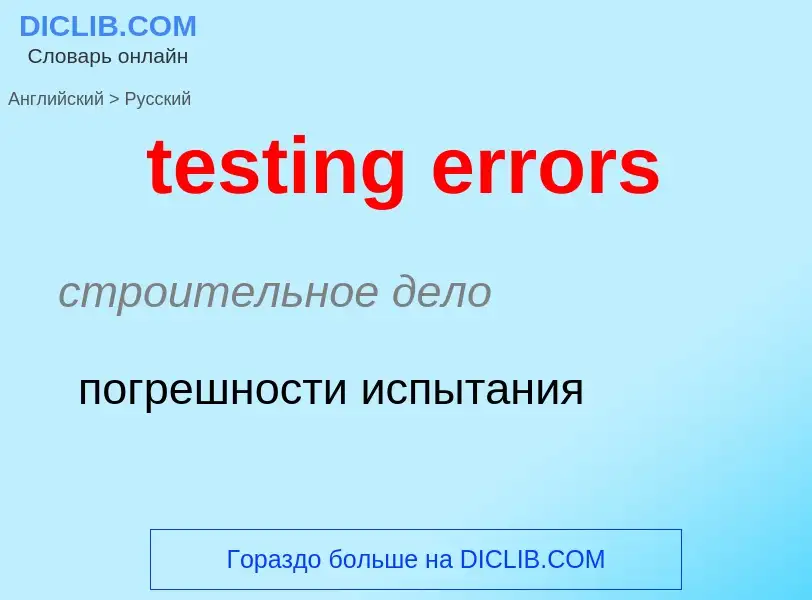Translation and analysis of words by ChatGPT artificial intelligence
On this page you can get a detailed analysis of a word or phrase, produced by the best artificial intelligence technology to date:
- how the word is used
- frequency of use
- it is used more often in oral or written speech
- word translation options
- usage examples (several phrases with translation)
- etymology
testing errors - translation to russian
строительное дело
погрешности испытания
общая лексика
проверка удобства использования
проверка способности системы корректно функционировать в точном соответствии с процессами и действиями, осуществляемыми конечными пользователями в привычной для них среде. В процессе исследования проводится анализ удобства пользовательского интерфейса и функциональности системы
Смотрите также
Definition
Wikipedia
In statistics, a forecast error is the difference between the actual or real and the predicted or forecast value of a time series or any other phenomenon of interest. Since the forecast error is derived from the same scale of data, comparisons between the forecast errors of different series can only be made when the series are on the same scale.
In simple cases, a forecast is compared with an outcome at a single time-point and a summary of forecast errors is constructed over a collection of such time-points. Here the forecast may be assessed using the difference or using a proportional error. By convention, the error is defined using the value of the outcome minus the value of the forecast.
In other cases, a forecast may consist of predicted values over a number of lead-times; in this case an assessment of forecast error may need to consider more general ways of assessing the match between the time-profiles of the forecast and the outcome. If a main application of the forecast is to predict when certain thresholds will be crossed, one possible way of assessing the forecast is to use the timing-error—the difference in time between when the outcome crosses the threshold and when the forecast does so. When there is interest in the maximum value being reached, assessment of forecasts can be done using any of:
- the difference of times of the peaks;
- the difference in the peak values in the forecast and outcome;
- the difference between the peak value of the outcome and the value forecast for that time point.
Forecast error can be a calendar forecast error or a cross-sectional forecast error, when we want to summarize the forecast error over a group of units. If we observe the average forecast error for a time-series of forecasts for the same product or phenomenon, then we call this a calendar forecast error or time-series forecast error. If we observe this for multiple products for the same period, then this is a cross-sectional performance error. Reference class forecasting has been developed to reduce forecast error. Combining forecasts has also been shown to reduce forecast error.

